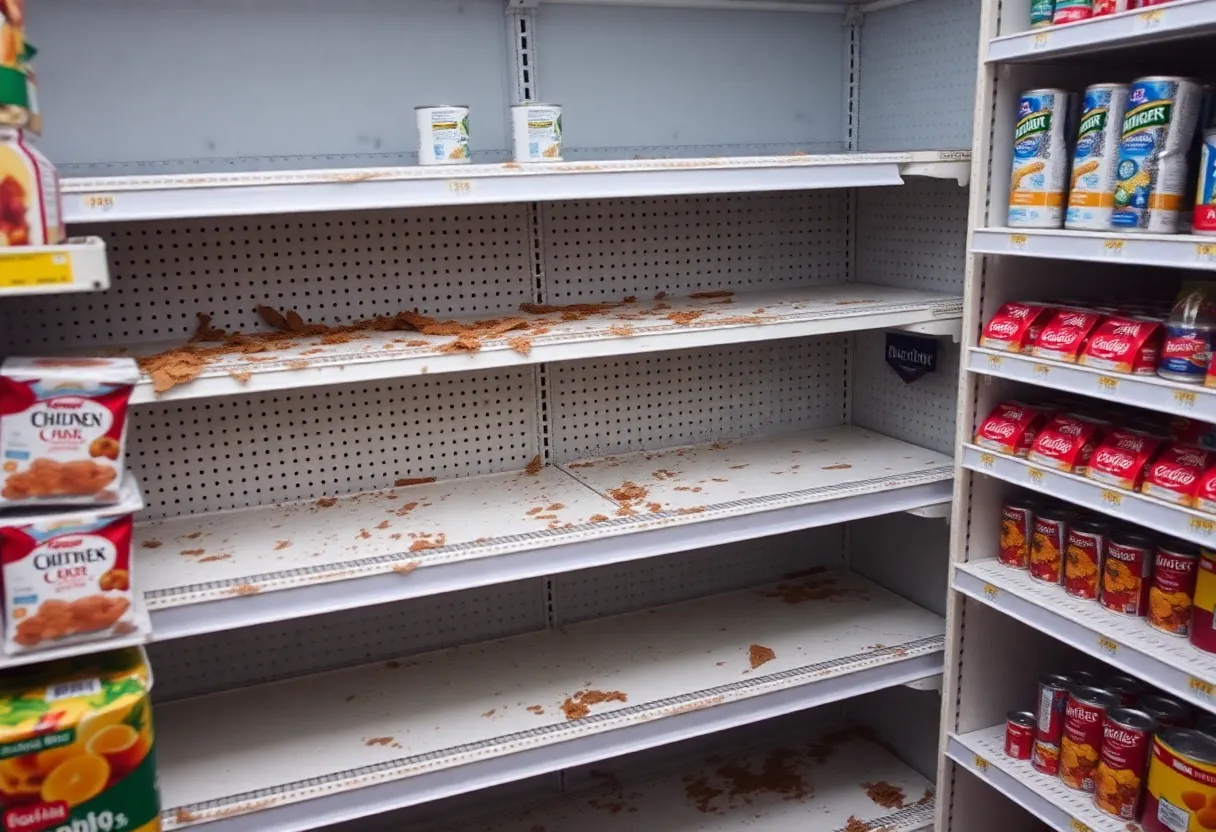News Summary
Michigan is confronting a severe food crisis as food banks prepare for imminent shortages due to the USDA’s cancellation of $4.3 million in food shipments. Essential items like chicken, eggs, and cheese, expected to provide over 2 million meals, are now lost, leaving many families in jeopardy. Local food banks are struggling to adapt, with some regions anticipating significant reductions in their food supplies. Community organizations are rallying together, but the long-term effects of these cancellations on food security remain a concern.
City Faces Food Shortages Amid USDA Cancellations
The charming state of Michigan is experiencing a significant food crisis as local food banks are bracing themselves for an impending shortage. The situation has taken a sharp turn with the recent news that the USDA has abruptly canceled over $4.3 million in food shipments that were pivotal for many families relying on these resources.
What Was on the Menu?
These canceled deliveries consisted of critical food items such as chicken, eggs, and cheese, with the expectation that they would serve up more than 2 million meals to those in need. It’s hard to imagine how these losses will ripple through the community. The USDA’s decision impacts the shipments slated from April to August, leaving countless families facing uncertainty.
Who’s Feeling the Pinch?
Food banks across Michigan, part of a network organized by the Food Bank Council of Michigan, are specifically struggling. The council oversees seven regional food banks, helping serve various areas including Kentwood and Flint. Each region is feeling the loss, but some are hit harder than others.
For instance, Gleaners Community Food Bank in southeastern Michigan is set to lose around 1.4 million pounds of USDA donations. That loss equates to an estimated $850,000 to replace those essential goods. Unfortunately, this more than likely means that about 25,000 fewer families will receive food support, affecting especially vulnerable groups like children and seniors.
Meanwhile, Feeding America West Michigan will also see a massive dip, missing out on 600,000 pounds of food, a loss that translates to a little over one week’s worth of their distribution. It’s disheartening to think how that could affect their efforts in providing food for those struggling.
Adjustments Ahead
To adapt to this unexpected reality, food banks are revising their distribution strategies. Phil Knight has indicated that boxes may contain less protein than before and opt for more produce as a workaround to this shortfall. For Food Gatherers in Washtenaw County, this situation means losing a crucial source that represented 15% of their food distribution last year, totaling around 1.2 million meals.
The South Michigan Food Bank has reported losing 400,000 pounds, making up 3-4% of their overall supply. This mounting concern over the food shortage comes at a time when many food banks have already been experiencing increased demand due to the phasing out of pandemic-era assistance programs and the rise in food prices.
A Call for Unity
Faced with these challenges, food banks are tightening expenses and seeking to fundraise for necessary food purchases. Gleaners is pulling from its own reserves to assist partner agencies, using $250,000 to mitigate the impact. There’s a silver lining though, as supportive community organizations, like Saginaw’s Moose Lodge 82, are stepping up to contribute essential donations and resources.
As the USDA has stated that the funding has been repurposed, concerns linger over the potential long-term effects on residents’ livelihoods and Michigan’s farmers. Communities are coming together to find alternative ways to fill the gaps. Ongoing efforts are being made to reach out for additional support from local businesses and organizations to ease the burden of these canceled USDA shipments.
The Road Ahead
Even amid this uncertainty, food banks remain committed to their mission of providing food for those who need it the most. The spirit of community and the resilience of organizations are shining through, ensuring that no one has to face the table empty. As the city navigates these challenging times, the solidarity and support of the community will be its biggest strength.








